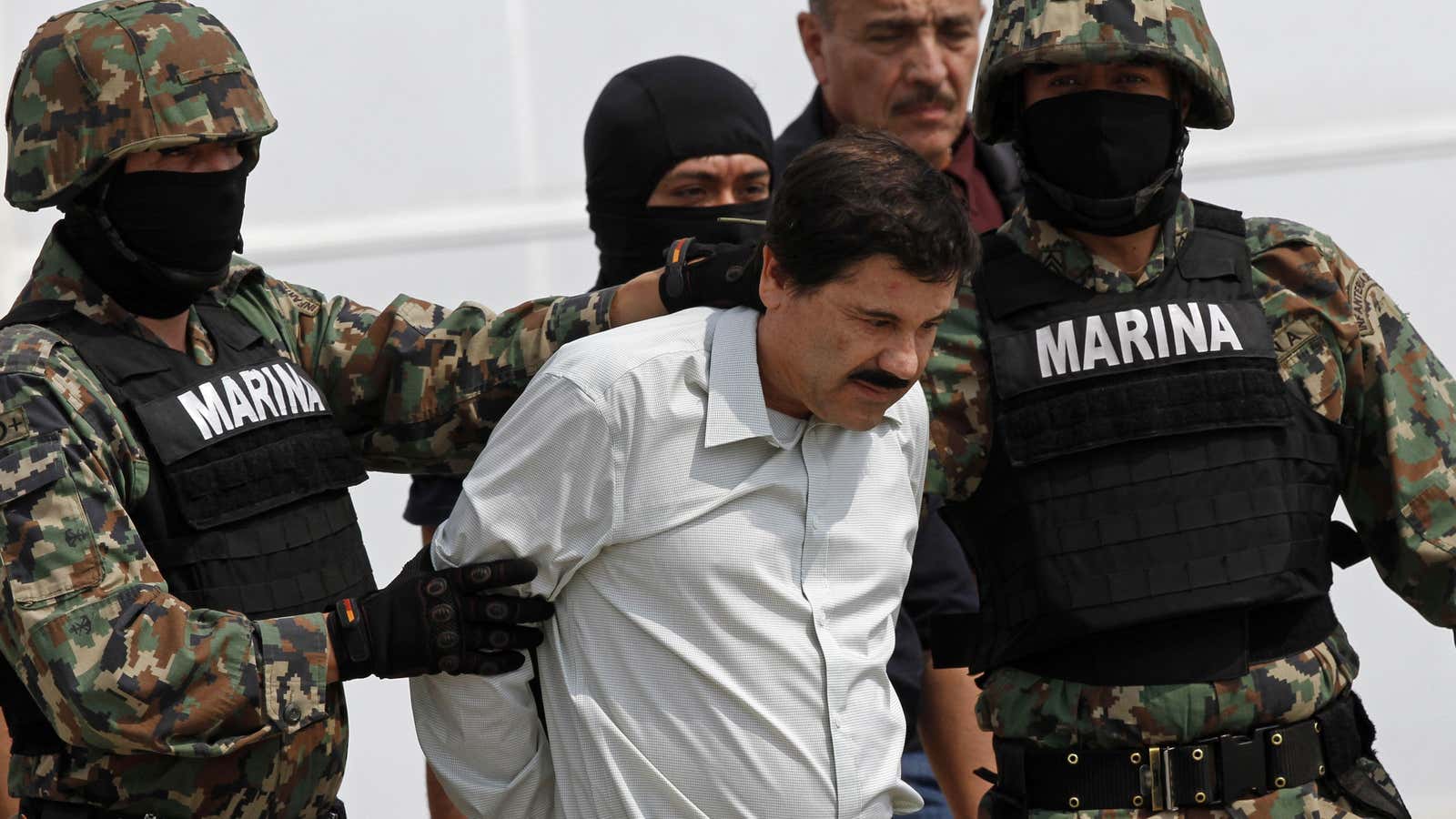Joaquin “El Chapo” Guzman, Mexico’s most notorious gangster and head of one of the world’s most powerful drug cartels, escaped Saturday night from a maximum security prison, just 17 months after he was captured following a 13-year manhunt.
Like everything he does, the escape—reportedly through a sophisticated mile-long tunnel—is bound to become the stuff of legends.
Guzman’s Sinaloa cartel is responsible for at least one-fourth of all the drugs smuggled from Mexico to the US, and is one of the main players in the country’s bloody drug wars, which have claimed at least 100,000 lives over the last decade. But in parts of Mexico, Guzman is seen as a powerful, benevolent businessman, one who is compared to “The Godfather’s” courtly Don Corleone.
Some of Guzman’s fame is drawn from stories of his lavish gestures: while on the run he reportedly entered expensive restaurants, confiscated the other diners’ cellphones, and picked up the check when he left. His life has inspired TV dramas and YouTube musicians alike:
”All I wanna be is El Chapo/Three billion dollars in pesos/All I wanna be is El Chapo/And when I meet him I’ma tell him bravo.”
A book about Guzman’s life spawned a 60-part Univision series, part of the “narco-thriller” trend on Spanish-language television.
Guzman was born in the Sinaloan village of Badiraguato, and grew up working on his family’s farm. He reportedly vowed never to return to that kind of life, but also did not forget about his origins, gaining himself fierce defenders in the area.
After El Chapo was arrested last February, a storekeeper there told Bloomberg the mafioso would regularly send food back to his village. “We’re thankful for everything he’s done for us and hope he gets out of jail soon,” the storekeeper said.
Guzman is the frequent subject of the drug-smuggling-themed Mexican folk songs known as “narcocorridos,” one of which imagined his life on the run after he escaped prison for the first time in 2001:
“He sleeps at times in houses/At times in tents/Radio and rifle at the foot of the bed/And sometimes his roof is a cave/Guzmán is everywhere.”
But journalists and writers who have chronicled his life warned not to romanticize Guzman’s blood-soaked legacy.
The New Yorker’s Patrick Radden Keefe wrote that “for all of Chapo’s undeniable chutzpah,” he “ran an organization that was responsible for tens of thousands of murders—each one a specific tragedy for the bereaved.” And novelist Don Winslow, who wrote about a lightly fictionalized version of Chapo in his novels “The Power of the Dog” and “The Cartel,” wrote an op-ed for CNN that concluded:
This “escape” will only add to his reputation as a Robin Hood-like folk hero — songs will be written and sung, kids will listen to them and aspire to be the next Chapo Guzman. The man is no Robin Hood — he’s a mass murderer.
The last time that Chapo “escaped,” his effort to put his empire back together touched off a decade-long war that caused untold suffering, left thousands of orphans, shattered communities and destroyed souls.
